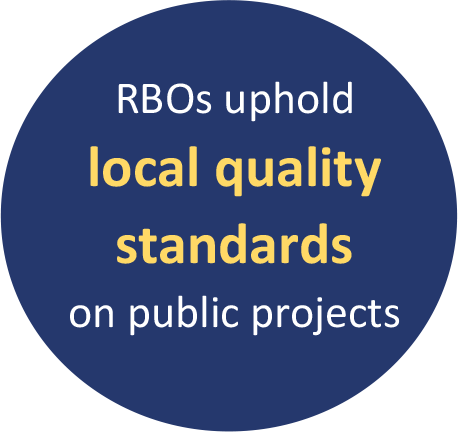Responsible Bidder Ordinances (RBOs) are local construction policies that establish objective criteria and verifiable standards for contractors bidding on public infrastructure projects. An RBO is a protection plan for taxpayers, ensuring that local quality standards, local levels of craftsmanship, and local economic development practices are upheld. An RBO also guarantees that responsible contractors win public projects, rather than fly-by-night contractors who cut corners in the areas of training and safety.
Most RBOs include important standards…
Proof of participation in a registered apprenticeship training program
Proof of certificates of insurance
Prequalification surveys
Compliance with all local, state, and federal laws
RBOs are especially effective in states that have repealed prevailing wage laws by minimizing the negative economic, safety, and workforce development consequences associated with a lack of standards on taxpayer-funded construction projects.
Worker turnover is 2% lower in counties with RBOs.
Workers on heavy and highway construction earn 8% more in counties with RBOs.
RBOs increase the share of local contractors winning bids, supporting the local economy.
RBOs improve the “living standards of construction workers without significantly raising costs for taxpayers”
Many counties, cities, townships, and school districts across the nation have enacted responsible bidder ordinances. However, most research on RBOs has been conducted in Illinois and Indiana.
Featured Work:
The Impact of Responsible Bidder Ordinances on Bid Competition and Public Construction Costs: Evidence from Illinois and Indiana, 2018-2019
October 20, 2020 |The Apprenticeship Alternative: Enrollment, Completion Rates, and Earnings in Registered Apprenticeship Programs in Illinois
January 6, 2020 |Responsible Bidder Ordinances Promote Local Construction Standards: Evidence from Indiana
May 22, 2018 |Responsible Bidder Ordinances are Protection Plans for Taxpayers, Providing the Highest Value at the Lowest Cost
May 10, 2017 |An Examination of the Economic Effects of a Potential Responsible Bidder Ordinance for St. Petersburg, FL
October 30, 2018 |




